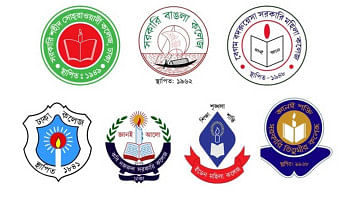EU worried over rights situation
The European Union has raised concerns over the human rights situation in Bangladesh, particularly focusing on the reports of extrajudicial killings and enforced disappearances.
In response, Bangladesh reiterated its “zero tolerance” policy to violations of laws and human rights by law enforcement agencies and the government’s commitment and continued efforts to ensure accountability and uphold human rights.
The EU and Bangladesh agreed to develop a roadmap to help improve labour and human rights situation in the country.
“We have raised concerns on some areas of human rights… We have agreed to continue the discussion,” said Paola Pampaloni, EU’s deputy managing director of the External Action Service yesterday, at a joint press conference.
The press conference was held after a more than 10-hour long meeting of the EU-Bangladesh 9th Joint Commission at the planning ministry in the capital.
Paola and Ashadul Islam, senior secretary of the Financial Institutions Division of the finance ministry, led their respective sides at the meeting.
Paola said the EU is based on certain values, including human rights, democracy and freedom of expression. She added that Bangladesh and the EU have agreed to continue the discussion on how to address the concerns the Union raised.
In a joint statement, the EU said the preferential trade facilities granted to Bangladesh and any future trade relationships are “conditional on the respect of human rights, including labour rights”.
Bangladesh is the source of more than 62 percent of all EBA (Everything But Arms) exports to the EU, and hence is the largest beneficiary from the programme granted to Bangladesh under the Generalised Scheme of Preferences (GSP).
The EU said that while good progress has been made on factory safety in the garment sector, many steps are still outstanding in the area of labour rights and the full implementation of the Sustainability Compact is also necessary.
“Sustained reforms of labour rights standards by the Government of Bangladesh, and their full alignment with International Labour Organisation (ILO) Conventions on the basis of consensus of tripartite constituents are crucial in this regard,” said the joint statement.
The two sides reviewed political developments and discussed the role of democracy, the rule of law and good governance and the importance of holding free and fair elections.
The EU stressed that a fully empowered and resilient civil society, in all its diversity, is a crucial component of a democracy.
The EU recalled its concerns regarding certain provisions of the Digital Security Act (DSA) and requested that freedom of expression is ensured. The Bangladesh side committed that no provision of the DSA will be used in any way to limit freedom of expression.
Both sides stressed the importance of ensuring full implementation of the International Covenant on Civil and Political Rights as well as the other UN human rights conventions ratified by Bangladesh, in line with the country’s Constitution.
“It is crucial for stability, economic growth and development to promote and protect the human rights of all, regardless of ethnicity, age, gender identity, sexual orientation, religious or political affiliation, disability or socio-economic background,” Paola said.
Lauding Bangladesh for its role in sheltering more than a million Rohingya refugees, she said the EU assured Bangladesh of political and financial support in facing the Rohingya crisis, as well as voluntary and sustainable return of the Rohingyas as Bangladesh expects continued EU support in this regard.
Both sides committed to pursue the accountability mechanisms for the crimes committed against the Rohingyas in Myanmar through various multilateral initiatives.
The EU said any relocation of the Rohingyas to Bhashan char should be voluntary.
The EU and Bangladesh also committed to further enhance the regular EU-Bangladesh Business Climate Dialogue to address impediments towards more trade and investment from the Union.
Bangladesh sought EU’s support to ensure that the country gets GSP Plus facilities once the country graduates from the Least Developed Country status by 2024.
The Joint Commission agreed to continue working together towards the implementation of the Sustainable Development Goals.

 For all latest news, follow The Daily Star's Google News channel.
For all latest news, follow The Daily Star's Google News channel. 



Comments